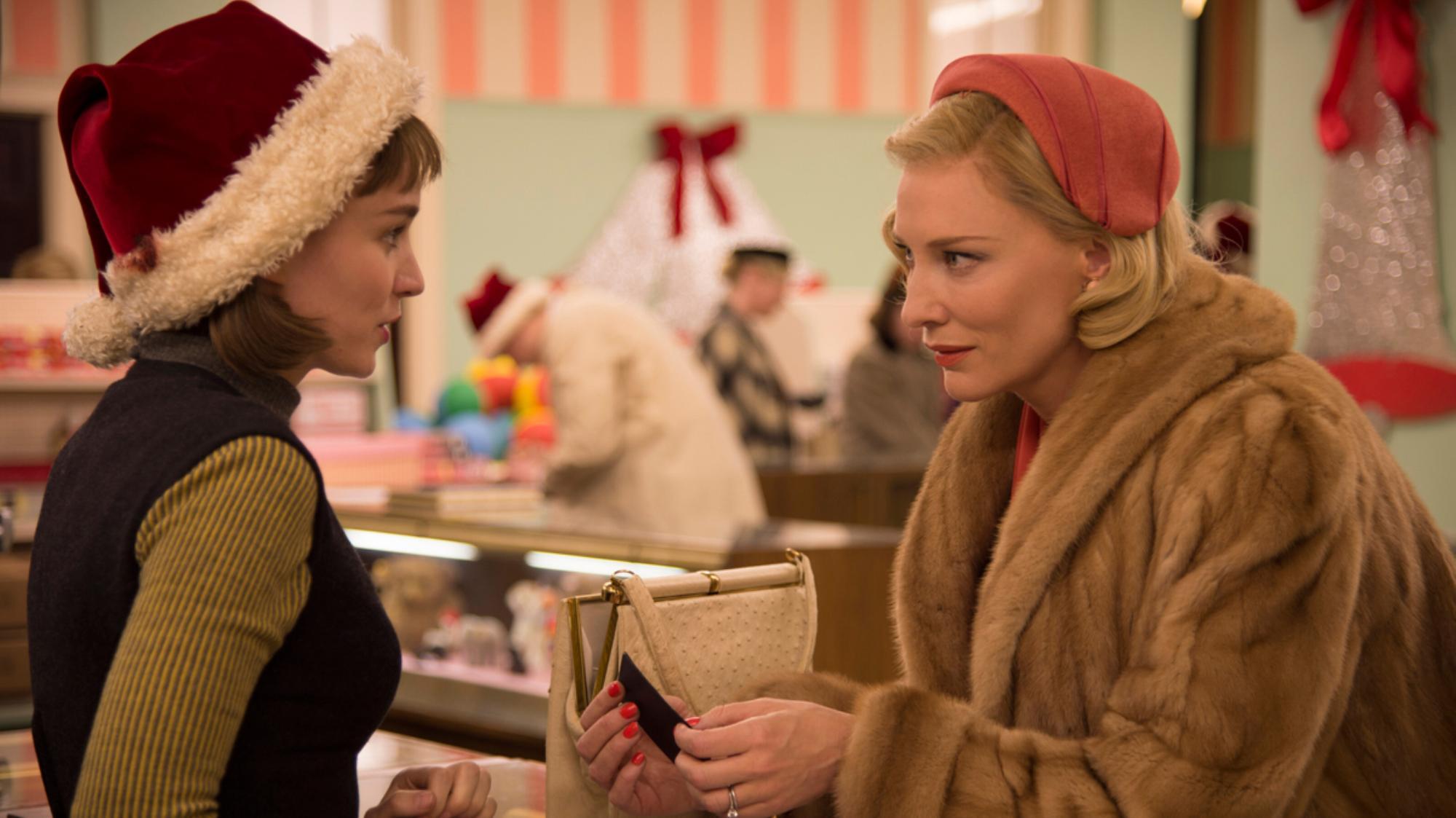The major headline following today’s snow white Oscar nominations will — rightfully — be that for the second year in a row, the Academy of Motion Picture Arts and Sciences has failed to nominate any actor of color. Not Michael B. Jordan for Creed, not Will Smith for Concussion, not Idris Elba for Beasts of No Nation, and not Mya Taylor for Tangerine.
Taylor was the subject of the first-ever Oscar campaign for a trans actor — an effort supported by Caitlyn Jenner — for her leading role in Sean Baker’s indie hit, which follows two trans sex workers in LA as they seek revenge on a cheating boyfriend. Taylor is one of many deserving actors of color whose collective exclusion is the latest infuriating chapter in the Academy’s discriminatory history. But Taylor’s omission also signals another Oscar diversity problem: where are the queers?
Though cis actors Eddie Redmayne and Elle Fanning’s casting in trans roles received slight backlash, the very fact that multiple films considering queer issues are being made is itself a victory. And following a year of major cultural strides for the LGBT community, stories like Freeheld, About Ray, The Danish Girl and Carol desperately need to be told. But the truth is, queer films have far more riding on awards season than action packed epics like Mad Max: Fury Road or The Revenant, which lead the Oscar pack with a whopping 10 and 12 nominations respectfully.
After being the most nominated film at the Golden Globes — and leaving the ceremony entirely empty handed — Carol received six Oscar nods today. Predictably, these included best actress and supporting nominations for Cate Blanchett and Rooney Mara (confirming the New York Times‘ suspicion that the Academy would not nominate both women in the lead category, well, because they’re women). Phyllis Nagy’s screenplay was nominated in the adapted category, while the film also saw nods for its score, cinematography, and costume design. But Carol was notably snubbed for the Best Picture nomination it has consistently been tipped for, and its director, Todd Haynes, was also surprisingly absent from the Best Director list. Had the New Queer Cinema pioneer been nominated, he would have been the only openly gay director in the field. Like Carol, many of his acclaimed films tackle queer issues and stories, including Far from Heaven and Velvet Goldmine.
Carol has raked in accolades at every possible turn, but in order to change Hollywood’s culture and actually usher in a movement of mainstream queer films, it needs to win. Here’s why: the film is based on Patricia Highsmith’s 1952 lesbian pulp fiction novel The Price of Salt. A semi-autobiographical story, it’s a rare, authentic account of what being queer in the early 50s was actually like. Highsmith’s personal friend and gifted screenwriter Phyllis Nagy spent 15 years adapting the work and struggling to get the film financed — even after massive names like Blanchett and Mara became attached to the project. In fact, Carol had a paltry budget of less than $12 million. Despite being open in very limited markets (in mostly liberal-leaning cities), it’s already brought in $15 million.
That’s the same microscopic budget awarded to The Danish Girl, which tells the heart wrenching story of Lili Elbe, a trans pioneer in 1920s Paris who was one of the first people to undergo sex reassignment surgery. The film has received four Academy nominations, but all of them are in hotly contested categories. Lead actor Redmayne has been nominated for his performance as Lilli, but following his Theory of Everything win last year and the still Oscarless Leonardo DiCaprio’s Golden Globe steam, it’s looking more likely his name will become buried under Revenant frenzy.
Of course, emotionally poignant queer period pieces will have a far more difficult time drawing box office dollars than multimillion dollar studio productions. But awards show wins help lend much needed visibility to queer films; they’re cause to push these films into markets they might not otherwise be released in, and will help secure better funding for future queer films. This year’s nominations continue on the strengths of LGBT focused films like Boys Don’t Cry (for which Hillary Swank was awarded Best Actress and Chloë Sevigny was nominated for her supporting role in 2000), 2005’s heavily nominated Brokeback Mountain, Transamerica — the indie for which Felicity Huffman was nominated in 2005 — and Milk, for which Sean Penn was awarded Best Actor in 2008.
There’s a pretty heavily trafficked, definitely illegal Tumblr page called Has Carol Leaked Yet? Its sole purpose is to share streaming links to the film — something fairly common for action and adventure fans, who pirate far more films than anyone. But Carol‘s links come with an unusual caveat: “It is important that this movie make money so that no executive in Hollywood can turn down a script that is female-driven and queer with the excuse of ‘they don’t make money,'” one post reads. “Carol made BANK in NYC its first weekend and continues to make gains, please keep the trend up once it expands to your theater!” People desperately want to see this film and they desperately want it to succeed.
Not every LGBT oriented film released this year is worthy of Oscar recognition, but the ones that are could greatly help effect major film industry change. Following a year that’s seen so many victories for queer rights and visibility, it’s time to keep those wins coming.
Credits
Text Emily Manning
Image © 2015 The Weinstein Company. All rights reserved.
